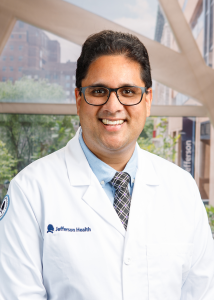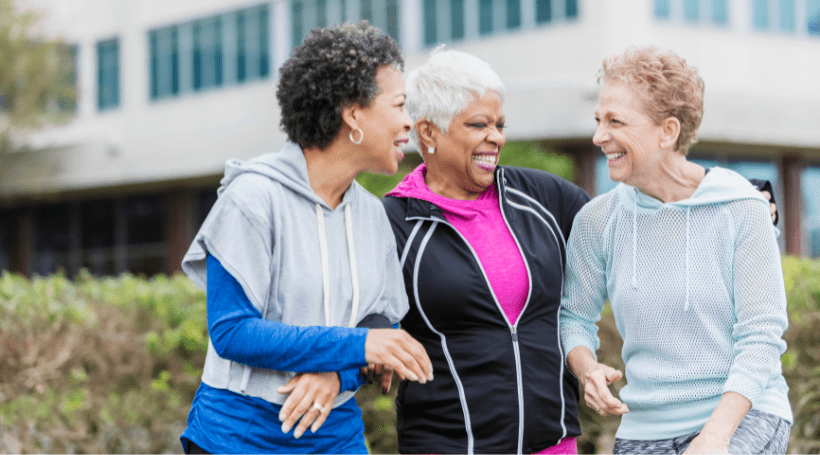Aging – everybody does it. There’s the good. And there’s the bad. Luckily, we got some tips from Jefferson Health family medicine’s Vishal Phakey, DO, on how to make the best of our aging experience.
Get a family doctor – and go see them
One of the easiest ways to set yourself up for successful aging is by enlisting help, says Phakey. Make sure you visit your family doctor (get one first if you haven’t yet!) each year for an annual check up. “Plus, you should stay up-to-date with recommended screenings including mammograms, colonoscopies, cancer checks and dermatology visits.”
Learn something new
Do you want to avoid being that person who always misplaces their phone or is always asking “have you seen my keys?” Well, here’s a trick: Sudoku. Stimulating your brain with games like Sudoku and crossword puzzles is a great way to keep it in top shape as time goes on.
“Learning new skills is another way to help with your memory,” says Phakey. “And that applies to your job, too. You hear people say, ‘I’m so bored at work.’ That’s a sign that your brain isn’t engaged. A lack of stimulation day after day for years can have lasting effects on your memory.”
Catch some zzzzz’s

Jefferson Health family medicine’s Vishal Phakey, DO
As we age, our sleep patterns are bound to change. But that doesn’t mean it’s any less important to get the recommended amount of sleep – 7 to 8 hours – for adults. Not only can poor sleep contribute to high cholesterol and diabetes, but getting a good night’s sleep helps our immune system, which weakens as we age, to recover.
Phakey recommends starting a bedtime routine to help your body get ready for sleep and definitely include turning off all electronics 30 minutes before bed.
You don’t need a gym
You can’t have a guide to aging without hitting the staples of good health. Our bodies need to move, and they need to be fueled the right way. When it comes to physical activity, Phakey recommends getting at least 30 minutes of cardiovascular activity each week. “That doesn’t mean you have to go to the gym though, you can start with a 15 minute walk each day or going for a swim is a great option – it’s easy on your joints.”
Get your food groups
As for diet – similar to our sleep patterns, our eating habits will change over the years. Our appetite shrinks, our metabolism slows and we have more trouble absorbing certain vitamins, says Phakey. That means we have to pay more attention to what we’re eating as the years go by.
“Make sure you’re getting enough protein, fats, vitamins and antioxidants in your diet,” Phakey says. “Green leafy vegetables are great for helping to protect your skin against UV rays and berries have antioxidants that are good for delaying the aging process. You’ll also want to make sure you get plenty of vitamins E and B and Omega-3s.”
Start small
You may have heard it before, but it really is true – it’s never too late to make changes to your lifestyle. “I had a 98-year-old patient who decided to quit smoking,” says Phakey. “Twenty minutes after you stop, your heart rate and blood pressure drops. One to 2 months after you quit, your lung capacity and circulation increases.”
With all of these tips, says Phakey, you don’t have to dive in all at once. Start small and think of making lifestyle modifications, not changes. Before you know it, you’ll see – and feel – big changes and set yourself up for successful aging.









